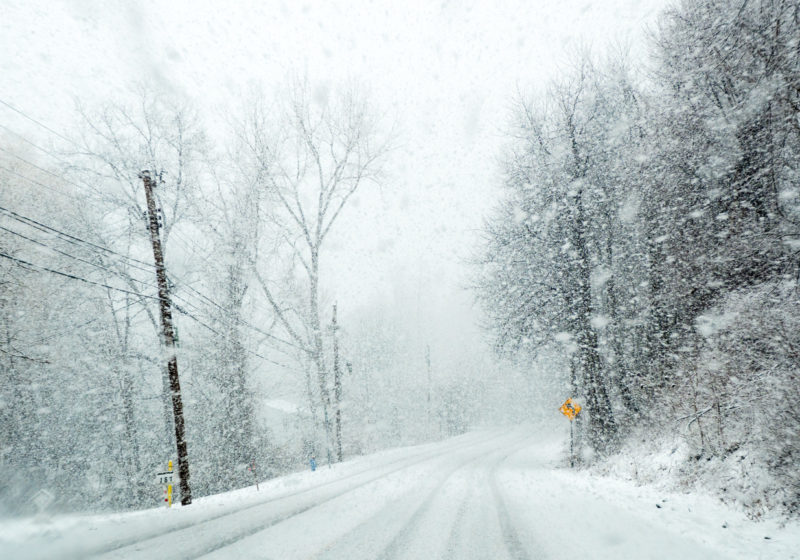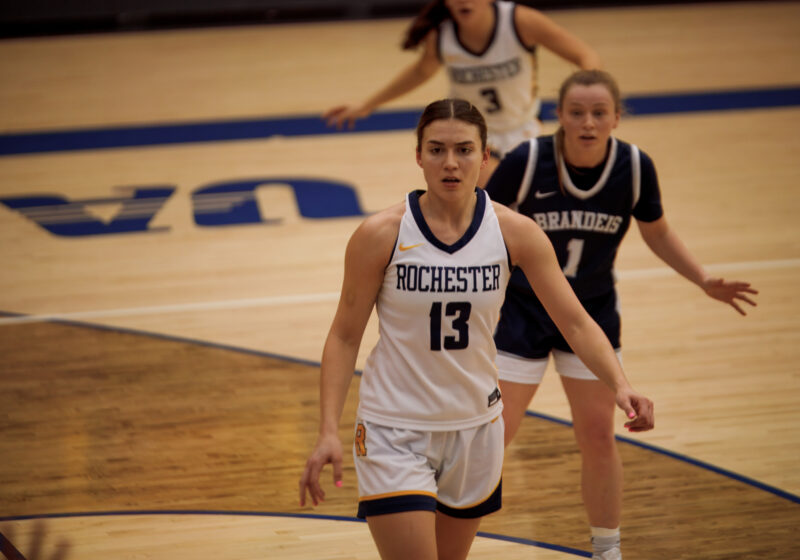The drive from home to here is rather scenic. You start out by crossing a bridge every few miles as you work your way northwest out of Maryland and into Pennsylvania. You reach the Susquehanna River near Harrisburg and follow its west bank, travelling north almost 100 miles to Williamsport. If you leave in the mid-morning, there won’t be any cars on the road, and you can watch the sun reflect off the water as it rises in the sky. You follow a highway that cuts between small towns as old as this country and a waterway that is even older. In late January, when I last made the drive, there will be flurries, and the rolling green hills that blend into verdant forests look more like crisp white sand dunes that turn into snowy woods.
If you are inclined to read poetry, you might be reminded, as I was, of Robert Frost’s work “Stopping by Woods on a Snowy Evening.”
Whose woods these are I think I know.
His house is in the village though;
He will not see me stopping here
To watch his woods fill up with snow.
My little horse must think it queer
To stop without a farmhouse near
Between the woods and frozen lake
The darkest evening of the year.
He gives his harness bells a shake
To ask if there is some mistake.
The only other sound’s the sweep
Of easy wind and downy flake.
The woods are lovely, dark and deep,
But I have promises to keep,
And miles to go before I sleep,
And miles to go before I sleep.
The poem is well-known, and for good reason. It captures the quiet, almost haunting beauty of a wintry forest, and the meditative yet restless feeling of a long journey. Though I’m no Robert Frost, I made my best effort to capture the emotions and images of my drive north in my first paragraph. Even if I was, his poem is not the same as my prose.
If prose is a picture, capturing scenes with as many sentences as possible like pixels on a screen, poetry is a painting with artful brush strokes that demonstrate the skill of the artist and leave questions for the mind to fill.
Frost paints with only a few brush strokes. He doesn’t actually give much of a physical description of his surroundings beyond the lake and deep woods nearby, and that it’s snowing. What kind of trees are they? How big is the lake? Is it frozen? Is the ground flat or hilly? Is it a new moon or a cloudy night? You’re only given a few details: the sounds of bells and wind, the falling snow, the horse, the idea of a village (though not one that we see). Yet he is able to demonstrate his skill with these 16 lines. The third line of each stanza rhymes with the first, second, and fourth lines of the next, so that they bleed together like colors on a canvas—distinct, but not always terribly easy to seperate.
Like with visual art, there doesn’t have to be a deeper meaning behind a poem, and if there is, that doesn’t have to be why you like it. Frost plants an image in your mind and a feeling in your heart.But this isn’t English class. I’m not in the business of tearing great works to shreds, only enjoying them. Whatever you felt when you read that poem, I hope you enjoyed it. If you read more deeply into it, that’s good. If you simply enjoyed Frost’s poetry, that’s also good.
—
As the woods of northern Pennsylvania turned into southern New York, I tried to find an NPR station. It took a bit of time, as the snow had gotten heavier, and I normally value my life more than what’s on the radio. However, it was just past noon on Jan. 20, 2021, so I did value what was on the radio. I tuned in just before President Biden’s speech. I thought it was good, but much like those who heard Edward Everett’s longer speech preceding the Gettysburg Address, I forgot the earlier words because of the power of what followed.
Amanda Gorman’s poem rightly took the country by storm. It’s already being studied in English classes across the country, and in one of my linguistics courses here. She isn’t painting an idealized scene like Frost; she’s creating a perception of the reality that is, and the one that could be. Like Frost, she uses rhythm, rhyme, alliteration, motion, contrast, parallelism, and many other devices.
But she also uses context. Context of the moment when she speaks and the one six months before. Context of popular plays and cultural histories. Context of identities both personal and national. And she sends a message. One of hope, persistence, and strength.
If you haven’t heard her recitation, or heard it and didn’t really listen to it, I recommend you do so. Not in the way I might recommend a New York Times op-ed or a linguistics paper. I recommend you listen to her poem in the way I recommend you listen to a song or a painting. It might carry a deeper message, and it might cause you to think differently about the world, but I mostly recommend it because she writes and recites beautifully and skillfully, and I think you might enjoy it.
Poetry isn’t a way of transmitting knowledge. It’s a painting. The line between poetry and song is quite clearly blurred. When does a poem become rap, and is rap music or poetry? Ancient bards would have sung the epic poems like “Beowulf” and “The Iliad,” and their audience would have enjoyed them, whether they found deeper meaning or not.
I said to myself and to the editors of this paper that I wanted to write about poetry, but I didn’t really know what I wanted to say until I said it. I still don’t really know if I’ve said anything. But I hope you’ll go pick up a book of poetry, or google a poet whose name you know, or browse a catalog of poems on the internet, and I hope you’ll enjoy it.
In the meantime, here’s a poem I enjoy and a few other recommendations from me and some friends:
“Bee”
A tremor of yellow from blossom to blossom
the day-shift bee stays out with the sun
then booms across the darkening valley
to his happy date with the honeycomb
8th-9th century Irish poem, translated by Patrick Crotty.


